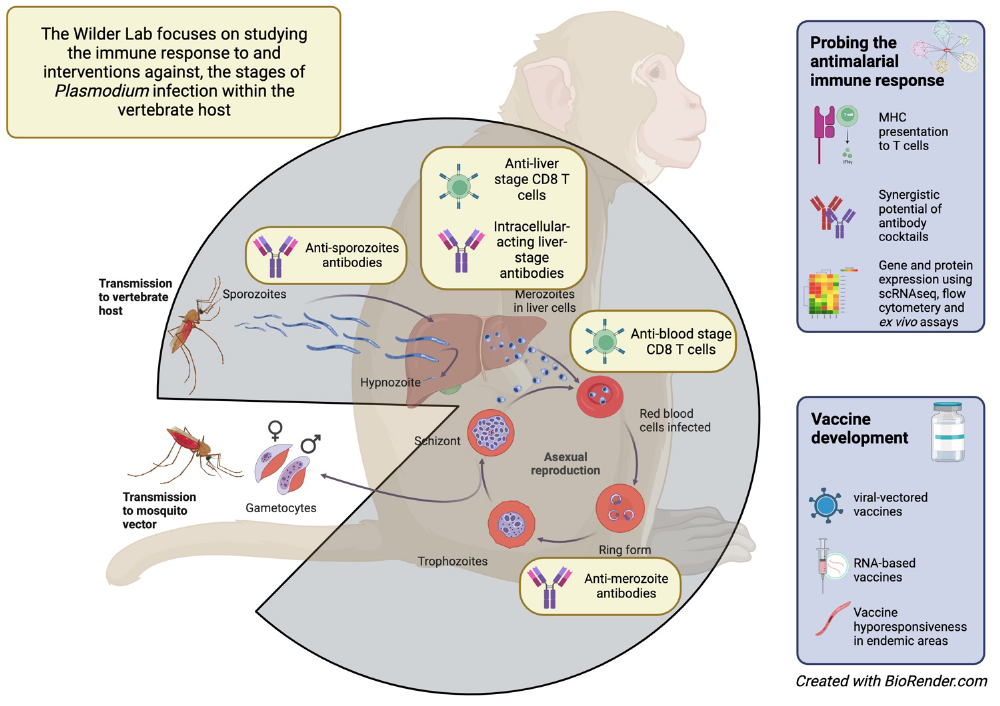About us
Malaria remains one of the deadliest infectious diseases in the world, with nearly 250 million cases per year causing over 500,000 deaths, primarily in children under 5 in sub-Saharan Africa. Our research aims to better understand the immune response to malaria infection and vaccination. With this information, we aim to develop better focused interventions against malaria infection and disease. This work includes assessing the impact of prior malaria exposure on vaccine efficacy, identifying key cell types required for protective immunity, studying novel mechanisms of antimalarial immunity at the liver and blood stages of infection, generating novel mRNA and CMV vaccine strategies, testing combinations of partially-protective monoclonal antibodies, and developing transgenic research tools for Plasmodium vivax research. This is made possible by the unique confluence of resources at VGTI and the Oregon National Primate Research Center that includes a state-of-the-art mosquito insectary, advanced flow cytometry, deep bioinformatics support for multi-omic studies, and a team science-based philosophy. This allows us to perform translational studies spanning traditional mouse models, humanized mice and non-human primate studies. We collaborate with PhDs, veterinarians and physicians in the US, Canada, Peru, UK, Kenya and Switzerland from organizations that span academia, non-profits and industry. Together, we hope to hasten an end to this ancient and horrific disease.
